- Highlights of the 85th Texas Legislature: A Summary of Enrolled Legislation, volume 1 & volume 2, Senate Research Center
- Major Issues of the 85th Legislature, House Research Organization
- Summary of Enactments: 85th Legislature, Texas Legislative Council
- Vulnerable Communities are Using Innovative Financing to Prepare for Natural Disasters: Spending on Mitigation Now Will Save Lives and Taxpayer Dollars, The Pew Charitable Trusts, Updated March 28, 2017
- Pre-Disaster Recovery Planning Guide for Local Governments, U.S. Federal Emergency Management Agency, February 2017
- Managing Disasters at the County Level: A Focus on Flooding, National Association of Counties, February 2017
- Interim Report to the 85th Texas Legislature (Charge 1 – Prevention and mitigation of natural disasters), House Committee on County Affairs, January 2017
- "The Role of Local Government in Emergency Management: A Discussion Addressing Financial Planning," PA Times Online (American Society for Public Administration), February 12, 2016
- Texas Government Code §§ 418.101-418.1102, Local and Interjurisdictional Emergency Management
- "Texas' Biggest County Bolsters Flood Rules. Will Houston?," E&E News (Environment & Energy News), December 6, 2017
- Floodplain Management & Watershed Protection Order, Commissioners' Court of Aransas County, Texas, February 17, 2016
- Floodplain Management in Texas: Quick Guide, Texas Floodplain Management Association, 2015
- Interim Report to the 82nd Texas Legislature (Charge 1 – County rulemaking authority), House Committee on County Affairs, January 2011
- Texas Local Government Code § 240.901, Land Use Regulation for Flood Control in Coastal Counties
- Texas Local Government Code § 561.001, Flood Control Property, Condemnation
- "Senate Bill 1849: Breaking Down the Sandra Bland Act – 85th Legislature," Texas County Progress, December 3, 2017
- TA Memo – SB 1849 Letter for Grant Funding (Technical Assistance Memorandum to sheriffs and jail administrators), Texas Commission on Jail Standards, November 10, 2017
- TA Memo – SB 1849 / Sandra Bland Act (Technical Assistance Memorandum to sheriffs), Texas Commission on Jail Standards, July 24, 2017
- Texas Code of Criminal Procedure Articles 16.22-16.23, Early Identification of Defendant Suspected of Having Mental Illness or Intellectual Disability; Diversion of Persons Suffering Mental Health Crisis or Substance Abuse Issue
- Texas Code of Criminal Procedure Article 17.032, Release on Personal Bond of Certain Defendants with Mental Illness or Intellectual Disability
- Flow Chart Describing Article 16.22 and Article 17.032 Requirements, Texas Commission on Jail Standards
- DriveTexas.org Proves To Be An Invaluable Resource for Texas Travelers During Hurricane Harvey, Texas Department of Transportation, September 13, 2017
- Governor Abbott Announces $25 Million in Federal Funds for TxDOT to Address Disastrous Impacts from Hurricane Harvey (Press Release), Office of the Texas Governor, August 29, 2017
- Interim Report to the 85th Texas Legislature (Charge 1 – TxDOT's role in natural disasters), House Committee on Transportation, January 2017
- Emergency Relief Manual: Reference Manual for States & Transit Agencies on Response and Recovery from Declared Disasters and FTA's Emergency Relief Program (49 U.S.C. 5324), Federal Transit Administration, September 30, 2015
- Texas Long-Term Recovery Guide, Texas Department of Public Safety, Texas Division of Emergency Management, April 2015
- Sunset Review Documents for 2016-2017 Review Cycle, 85th Legislative Session, Texas Department of Transportation (TxDOT), Sunset Advisory Commission, 2017
- 85th Legislature 2017: Summary of Enacted Legislation (Changes adopted by Sunset Commission), Texas Department of Transportation, 2017
- Interim Report to the 85th Texas Legislature (Topic 1 – Maintaining the military value of defense communities and installations), House Committee on Defense and Veterans' Affairs, December 2016
- Preparing for Duty: State Policy Options to Sustain Military Installations, National Conference of State Legislatures, December 2016
- Report and Recommendations to the 85th Texas Legislature (Charge 5 – Best practices for improving military value at military installations in Texas), Senate Committee on Veteran Affairs and Military Installations, November 2016
- "Military Installations Worth Billions for Texas: Comptroller Study Weighs Economic Impacts," Fiscal Notes, Texas Comptroller of Public Accounts, September 2016
- Texas Military Preparedness Commission, Office of the Governor (includes 2015 fact sheet on history and economic impact)
- San Antonio Military Economic Impact Study (includes Texas Military Economic Impact of installations across the state), City of San Antonio, 2015
- 2017 Citizen-Readiness Index (Infographic) and Methodology, Mission: Ready, Council for a Strong America, December 18, 2017
- "Improving Military Readiness Through Physical Activity," Parks & Recreation Magazine, National Recreation and Park Association, November 2017
- The State of Obesity: Better Policies for a Healthier America, Trust for America's Health and Robert Wood Johnson Foundation, August 2017
- Unfit to Serve: Obesity Is Impacting National Security (Fact Sheet), Centers for Disease Control and Prevention, May 2017
- Too Fat, Frail, and Out-of-Breath to Fight (Texas physical activity report, including county data on physical activity and obesity), Mission: Readiness, 2015
- Interim Report to the 85th Texas Legislature (Charge 7 – Oversize/overweight corridors and permitting), House Committee on Transportation, January 2017
- Interim Report to the 85th Legislature (Oversize/overweight vehicles, summary of oversize/overweight permits offered), Senate Committee on Transportation, November 2016
- Transportation Safety: Federal Highway Administration Should Conduct Research to Determine Best Practices in Permitting Oversize Vehicles, Results of Collection of Information on State Permitting Practices for Oversize Vehicles (E-Supplement including data on permit processes for oversize and overweight vehicles in the 50 states and the District of Columbia), U.S. Government Accountability Office, February 2015
- Oversize/Overweight Vehicle Research Priorities: Final Report, Texas A&M Transportation Institute, October 2014
- Accommodating Oversize and Overweight Loads: Technical Report, Texas Transportation Institute, July 2012
- Oversize/Overweight Permits, Publications, Texas Department of Motor Vehicles
- Freight, Texas A&M Transportation Institute, Transportation Policy Research Center
- Autonomous Vehicles Legislative Database, National Conference of State Legislatures, January 23, 2018
- Current Unmanned Aircraft State Law Landscape, National Conference of State Legislatures, January 16, 2018
- Autonomous Vehicles | Self-Driving Vehicles Enacted Legislation, National Conference of State Legislatures, January 2, 2018
- "ITS Is Changing the World" (Intelligent Transportation Systems), Public Roads, Federal Highway Administration, July/August 2017
- Interim Report to the 85th Texas Legislature (Charge 8 – Innovative transportation technologies/autonomous vehicles), House Committee on Transportation, January 2017
- Autonomous Vehicle Status (Testimony to House Committee on Transportation), Ginger Goodin, Texas A&M Transportation Institute, December 7, 2016
- Taking Off: State Unmanned Aircraft Systems Policies, National Conference of State Legislatures, July 22, 2016
- Automated Vehicles: Policy Implications Scoping Study, Texas A&M Transportation Institute, January 2014
- Technology, Texas A&M Transportation Institute, Transportation Policy Research Center
-
Examine how the economy is shaping up after President Trump's first year in office. (Forbes, January 18, 2018)
-
Read about a working group's findings on the state of early education in America. (National Conference of State Legislatures, January 18, 2018)
-
Follow updates from Texas' oil and gas regulatory agency. (Railroad Commission of Texas, last updated January 23, 2018)
-
Try out the revamped Texas Unclaimed Property database. (Texas Comptroller of Public Accounts, accessed January 24, 2018)
- "Will Austin sick leave rules irk Texas lawmakers?" By Daniel Salazar. Austin Business Journal, January 19, 2018, p. 8.
Considers how Texas legislators would react to local ordinances requiring employers to provide some type of paid sick leave to their employees.
Reports at: http://www.epi.org/files/pdf/130245.pdf and http://www.epi.org/files/pdf/133463.pdf - "Legislative stars from the 2017 Texas Legislature." Classroom Teacher (Texas Classroom Teachers Association), Winter 2017-18, pp. 13-15.
Presents members of the 85th Legislature designated "legislative stars" by the Texas Classroom Teachers Association. Highlights education-related issues and legislation backed by these lawmakers. - "Missy Shorey has the most impossible job in Dallas." By Eric Celeste. D Magazine, February 2018, pp. 36-37.
Describes the challenges facing the new chair of the Dallas County Republican Party as she works to recruit and support Republicans in a county that has elected more Democratic candidates in recent elections. - "America's trade policies: steel wars." Economist, January 13th-19th, 2018, pp. 63-64.
Considers the Trump administration's options for addressing the dramatic increase in steel imports — whether the increase poses a threat to America's national security. - "Trump and the economy: no discredit where none is due." Economist, January 13th-19th, 2018, p. 23.
Evaluates the Trump administration's economic policy. Assesses the prospects for the American economy in 2018. - "State agencies and 'legacy' systems: the cost of aging government technology." By Courtney King and Bruce Wright. Fiscal Notes, December 2017-January 2018, pp. 1, 3-5.
Examines trends in information technology [IT] spending at Texas state agencies, the consequences of an aging IT infrastructure, and the growing skills gap in Texas' ability to maintain legacy IT systems. - "State of Texas children 2017: child well-being in the Rio Grande Valley." By Kristie Tingle, Madeline Haynes, and DongMei Li. Internet Resource, November 29, 2017, pp. 1-13.
Outlines current and historical policies that contribute to children's lack of economic, educational, and health opportunities in the Rio Grande Valley. Offers key policy recommendations for improving the welfare of Valley children. - "Taxes and sugar-sweetened beverages." By Lisa M. Powell and Matthew L. Maciejewski. JAMA (Journal of the American Medical Association), January 16, 2018, pp. 229-230.
Debates the efficacy of imposing excise taxes on sugar-sweetened beverages as an approach to reduce obesity. - "Medication-assisted opioid treatment prescribers in federally qualified health centers: capacity lags in rural areas." By Emily B. Jones. Journal of Rural Health, Winter 2018, pp. 14-22.
Highlights the significance of health care centers in providing access to medication-assisted substance use disorder treatment services. - "Friend of science." By Julie Kelly. National Review, January 22, 2018, pp. 12-13.
Profiles Texas Congressman Lamar Smith and his tenure as Chairman of the House Committee on Science, Space, and Technology. - "Can big data help save abused kids?" By Naomi Schaefer Riley. Reason, February 2018, pp. 29-38.
Explores the potential of predictive risk modeling and use of big data in pursuit of better risk assessment calculations in child welfare cases. Describes a current project, the Allegheny Family Screening Tool, as a promising model. - "Air pollution's hidden impacts." By Joshua Graff Zivin and Matthew Neidell. Science, January 5, 2018, pp. 39-40.
Discusses how air pollution can affect the economy because of changes to worker productivity. - "The funded status of local pensions inches closer to states." By Jean-Pierre Aubry, Caroline V. Crawford, and Alicia H. Munnell. State and Local Pension Plans (Center for Retirement Research at Boston College), January 2018, pp. 1 -13.
Assesses the current status of local pension plans and compares trends in funded status for state and local plans. Includes funded ratio and percentage of Annual Retirement Contribution [ARC] paid for pensions in the cities of Austin, Dallas, El Paso, Fort Worth, Houston, and San Antonio. - "Globalization's effects on Texas manufacturing." By Luis B. Torres and Wesley Miller. Tierra Grande, January 2018, pp. 2-6.
Explores the effects of NAFTA and China's accession into the World Trade Organization [WTO] on Texas manufacturing employment. Argues that while Texas manufacturing would benefit from updates to NAFTA, eliminating the agreement would present greater risks. - "A year ago, they marched. Now a record number of women are running for office." By Charlotte Alter. Time, January 29, 2018, pp. 26-33.
Discusses the surge of first-time female candidates running for office in 2018. Spotlights Erin Zwiener, a Texas House candidate, and quotes several other Texas female candidates.
Below is a list of members (as of January 23, 2018) not returning to the 86th Texas Legislature in their current offices. Note that regardless of election outcomes, all of these legislators will keep their respective seats until January 2019, unless they resign earlier.
 |
Rep. Cindy Burkett | Running for Texas Senate |
 |
Rep. Byron Cook | Retiring |
 |
Rep. Pat Fallon | Running for Texas Senate |
 |
Rep. Helen Giddings | Retiring |
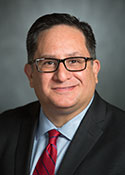 |
Rep. Larry Gonzales | Retiring |
 |
Rep. Lance Gooden | Running for U.S. Congress |
 |
Rep. Jason Isaac | Running for U.S. Congress |
 |
Rep. Mark Keough | Running for Montgomery County judge |
 |
Rep. Jodie Laubenberg | Retiring |
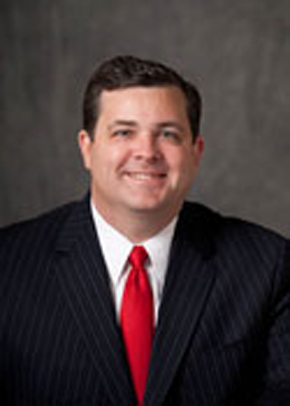 |
Rep. Larry Phillips | Retiring |
 |
Rep. Kevin Roberts | Running for U.S. Congress |
 |
Rep. Leighton Schubert | Resigned effective 2/4/2018 |
 |
Rep. Joe Straus | Retiring |
 |
Sen. Van Taylor | Running for U.S. Congress |
- Texas Agricultural Losses from Hurricane Harvey Estimated at More Than $200 Million (Press Release), Texas A&M AgriLife Extension, October 29, 2017
- "Digging Out with Fewer Hands: Recovery Is No Sure Thing in the Small Texas Towns Wrecked by Hurricane Harvey (La Grange, Columbus, Sargent)," Austin American-Statesman, September 21, 2017
- "Federal Agricultural Recovery Resources for Hurricane-Related Losses," CRS Insight, Congressional Research Service, September 8, 2017
- Hurricane Harvey Response, Texas Department of Agriculture
- Living With Dams: Extreme Rainfall Events: An Informational Booklet for Policymakers, Dam Owners and Downstream Communities, Association of State Dam Safety Officials, 2015
- "Developing Storm (Parts 1 – 7)," Houston Chronicle, December 7 – 24, 2017
- 2017 State Water Plan: Water For Texas, Texas Water Development Board, adopted May 19, 2016, with amendments approved July 7, 2016, and December 7, 2017
- A Guide to Public Alerts and Warnings for Dam and Levee Emergencies, U.S. Army Corps of Engineers Risk Management Center, June 5, 2015
- Flooding Impacts in Connection with the Reservoirs (U.S. Army Corps of Engineers information, ground elevation and water levels of Addicks and Barker Reservoirs), Harris County Flood Control District
- Flood Protection Grant Programs, Texas Water Development Board
- Subdivisions Impacted by Rising Barker and Addicks Reservoir Levels (Interactive map), Houston Chronicle
- "Should Texas Kill the Controversial Driver Responsibility Program?, Fort Worth Star-Telegram, April 6, 2017
- Interim Report to the 85th Legislature (Charge 5 – Evaluate necessity of the Driver Responsibility Program), Senate Transportation Committee, November 2016
- Texas Trauma System Funding: Presentation to the House Appropriations & House Public Health Committees (With handouts), Legislative Budget Board, July 2016
- Texas' Trauma System (Funding and Driver Responsibility Program), Teaching Hospitals of Texas, May 2016
- Interim Report to the 84th Legislature (Charge 4 – Improvement of Driver Responsibility Program), House Committee on Homeland Security and Public Safety, January 2015
- "Bleeding Money: Texas Trauma Center Funding is in Jeopardy," Texas Medicine, July 2010
- Texas Health & Safety Code § 780.002, Certain Deposits to Account (Driver Responsibility Program, Trauma Fund)
- Texas Transportation Code §§ 708.001-708.159, Driver Responsibility Program
- "Texas Collects Fees from Residents to Clean Up the Air: Why Won't Lawmakers Use It?," Texas Observer, April 13, 2017
- Texas Emissions Reduction Plan Biennial Report (2015-2016): A Report to the 85th Texas Legislature, Texas Commission on Environmental Quality, December 2016
- Interim Report to the 85th Legislature (Charge 2 – Texas Emissions Reduction Plan), Senate Committee on Natural Resources and Economic Development, November 2016
- "Talking TERP – The Texas Approach to Clean Air (Part 2)" (Addresses whether program has been a good investment), Texas Clean Air Matters (Blog), Environmental Defense Fund, November 3, 2016
- "Talking TERP – The Texas Approach to Clean Air (Part 1)" (Overview), Texas Clean Air Matters (Blog), Environmental Defense Fund, October 31, 2016
- Texas Emissions Reduction Plan: Issue Brief, Legislative Budget Board, April 2013
- Texas Health & Safety Code §§ 386.001-386.252, Texas Emissions Reduction Plan
- "Further Reduce Reliance on General Revenue-Dedicated Accounts for Certification of the State Budget," Legislative Budget Board Staff Reports, Legislative Budget Board, January 2017
- Actions Taken by the Legislature to Reduce Reliance on General Revenue-Dedicated Balances, Legislative Budget Board, May 18, 2016
- "How Much Has Been Raised for Harvey Relief – and How's It Being Spent?," Texas Tribune, November 28, 2017
- Updated Hurricane Harvey’s Fiscal Impact on State Agencies (Presented to Senate Finance Committee), Legislative Budget Board, December 5, 2017
- "Hurricane Harvey Wreaks New Damage on Texas Homeowners as Mortgage Delinquencies Soar," San Antonio Express-News, January 15, 2018
- Hurricane Harvey: Information for Consumers and Bankers in the Affected Areas, Federal Deposit Insurance Corporation (FDIC), last updated September 8, 2017
- After the Storm: The Impact of Recent Hurricanes (Impact of Hurricanes Harvey, Irma, and Maria on banks and customers), American Banker, August-October 2017
- Harvey Information (Press releases, industry notice, proclamations), Texas Department of Banking
- Statutes and Rules, Texas Department of Savings and Mortgage Lending
- The State of Free Speech and Tolerance in America: Attitudes About Free Speech, Campus Speech, Religious Liberty, and Tolerance of Political Expression (Section V - campus speech), Cato Institute, October 31, 2017
- "Flip-Flopping on Free Speech: The Fight for the First Amendment, On Campuses and Football Fields, From the Sixties to Today," The New Yorker, October 9, 2017
- Campus Free Speech: A Legislative Proposal, Goldwater Institute, January 30, 2017
- Campus Free Speech Protection: A Policy White Paper, Texas Conservative Coalition Research Institute, January 2017
- The ALT-Right on Campus: What Students Need to Know, Southern Poverty Law Center, 2017
- "Criticism Builds for Texas DPS Decision to Lay Off 117 Older Officers," Texas Tribune, January 11, 2018
- Need-Based Dismissal Report (Interoffice Memorandum), Texas Department of Public Safety, December 18, 2017
- Compassionate Use Program (News & Updates), Texas Department of Public Safety, December 2017
- Texas Gang Threat Assessment, Texas Department of Public Safety, July 2017
- Texas Border Security Monthly Brief, Texas Department of Public Security, June 2017
- State Funding for Border Security (Presented to the House Appropriations Committee), Legislative Budget Board, February 2017
- "Improve Transparency and Oversight of the Driver License Improvement Program," Legislative Budget Board Staff Reports, Legislative Budget Board, January 2017
- Agency Strategic Plan, Fiscal Years 2017 to 2021, Texas Department of Public Safety, 2017
- Texas Homeland Security Strategic Plan 2015-2020, Texas Office of Homeland Security, September 30, 2015
- "Should Public Schools Teach Kids How to Interact with Police?," Governing, October 6, 2017
- "Texas Teens to be Trained Next Year on Police Interactions," Texas Tribune, September 22, 2017
- Texas Education Code § 28.012, Instruction on Interaction with Law Enforcement
- Texas Public Junior Colleges Safety and Security Needs Assessment Report 2017, Texas School Safety Center, Texas State University, 2017
- "Campus Carry in Spotlight After Police Officer's Death," Inside Higher Ed, October 11, 2017
- "Community Colleges Face Big Security Risks with Few Resources," Chronicle of Higher Education, October 2, 2015
- Texas Hotel Performance Research, Prepared for Texas Tourism, Office of the Governor, Economic Development and Tourism, JLL, March 2017
- "The Hotel Occupancy Tax: A Short History of a Complex Levy," Fiscal Notes, Texas Comptroller of Public Accounts, June-July 2016
- Hotel Occupancy Tax, Municipal Hotel Occupancy Tax Reporting, Texas Comptroller of Public Accounts
- "Texas Ranks Near the Top (Again) for Economic Freedom" (Blog), Texas Public Policy Foundation, January 8, 2018
- License to Work: A National Study of Burdens from Occupational Licensing, 2nd Edition, Texas state profile, Institute for Justice, November 2017
- Economic Freedom of North America 2017, Fraser Institute, 2017
- Interim Report to the 85th Legislature (Charge 3 – Economic development incentives, modification of existing administrative or regulatory barriers; Charge 4 – Expedited permitting), Senate Committee on Natural Resources and Economic Development, November 2016
- Enemy of the People: How Government Barriers to Competition Hurt the Public and Subvert the Constitution, Texas Public Policy Foundation, April 2014
- "Harvey's Next Blow: Home Values, Tax Collections Expected to Drop," Texas Tribune, October 20, 2017
- "Houston-Area School Districts Give Property Owners Tax Relief After Hurricane Harvey," Houston Chronicle, October 19, 2017
- Declared Natural Disasters and Emergencies Tax Help: Property Taxes in Disaster Areas, Texas Comptroller of Public Accounts
- Texas Tax Code § 23.02, Reappraisal of Property Damaged in Natural Disaster Area
- Biennial Registries of Reinvestment Zones for Tax Abatements and Tax Increment Financing 2016, Texas Comptroller of Public Accounts, December 2016
- Texas Tax Code Ch. 311, Tax Increment Financing Act (Tax Increment Reinvestment Zones)
- Tax Increment Financing Act, Tax Code Chapter 311 Overview, Texas Comptroller of Public Accounts
- Explore Americans' perceptions of the news media. (Gallup, January 17, 2018)
- Read about the legislative process in Congress. (Congressional Research Service, January 10, 2018)
- Consider which drugs are causing lethal overdoses. (FiveThirtyEight, January 17, 2018)
- Examine the costs of severe weather events. (National Oceanic and Atmospheric Administration, 2018)
- "Marital discord." By Jonathan Black. ABA Journal: The Lawyer's Magazine, January 2018, pp. 16-18.
Highlights several states' efforts to change minimum-age marriage laws and to prohibit forced marriages. - "The Texas GED problem is getting worse." By Chandra Villanueva. Center for Public Policy Priorities, January 2018, pp. 1-14.
Reports on the decline in the number of individuals taking and passing the General Equivalency Diploma [GED] exam. Addresses the need for the state to follow students who receive a high school equivalency and track their career and educational outcomes.
See: https://forabettertexas.org/images/2018_EO_GEDproblem_FullReport.pdf - "'Always think deeply.'" Chronicle of Higher Education, January 5, 2017, pp. A6-A7.
Interviews Ruth J. Simmons, former president of Brown University and current president of Prairie View A&M University, about her career and coming out of retirement to guide Prairie View. - "A dying town." By Sarah Brown and Karin Fischer. Chronicle of Higher Education, January 5, 2017, pp. A14-A23.
Discusses current research correlating low education levels in areas of economic malaise with poorer health outcomes. - "High-tax states: tax replanning." Economist, January 6th-12th, 2018, pp. 17-18.
Examines how states might try to circumvent the new federal tax law. - "Mortality quadrupled among opioid-driven hospitalizations, notably within lower-income and disabled white populations." By Zirui Song. Health Affairs, December 2017, pp. 2054-2061.
Examines opioid-driven hospitalizations in the United States. Finds that while the total volume has remained stable, it has shifted from diagnoses involving opioid dependence toward those centered on opioid or heroin poisoning, with patients more likely to be white, ages 50-64, Medicare beneficiaries with disabilities, and residents of low-income areas. - "Only one in twenty justice-referred adults in specialty treatment for opioid use receive methadone or buprenorphine." By Noa Krawczyk, et al. Health Affairs, December 2017, pp. 2046-2053.
Investigates whether the criminal justice system refers people to the highest standard of treatment for opioid use disorder, methadone or buprenorphine. Reports that only 4.6 percent of justice-referred clients received such treatment, compared to 40.9 percent of those referred by other sources. - "Five ethical values to guide health systems reform." By Lawrence O. Gostin. JAMA (Journal of the American Medical Association), December 12, 2017, pp. 2171-2172.
Outlines five critical values for health care reform – universal access, equitable access, affordable access (cost), quality, and choice. Explains the trade-offs and why certain values should take priority. - "State fiscal effort and juvenile incarceration rates: are we misdirecting our investment in human capital?" By Jessica McGrath Ellison, William Owlings, and Leslie S. Kaplan. Journal of Education Finance, Summer 2017, pp. 45-63.
Examines whether an increase in state fiscal effort for education is associated with decreased juvenile incarceration rates over the last 25 years in all 50 states. - "The waning impact of school finance litigation on inequality in per student revenue during the adequacy era." By Dennis J. Condron. Journal of Education Finance, Summer 2017, pp. 1-20.
Examines how adequacy lawsuits affected inequality in school funding within states from 1990 to 2011. Finds adequacy litigation helped reduce inequality during the 1990-2000 period, but in contrast, from 2001-2011 in which there were fewer lawsuits, revenue inequality increased. - "Building a blue Texas." By John Nichols. Nation, December 18/25, 2017, pp. 12-15.
Speculates on the future of the Democratic Party in Texas and examines the revival of progressive-populist politics in the state. - "The glut economy." By Lawrence Wright. New Yorker, January 1, 2018, pp. 42-50, 52-53.
Examines the history of boom and bust in the Texas energy industry and the role the industry currently plays in the Texas economy. Discusses the industrialization of communities and environmental concerns in areas of intensive drilling.
See: https://www.newyorker.com/magazine/2018/01/01/the-dark-bounty-of-texas-oil - "Industry insights: innovations put sustainable water systems in reach." By Frank Zammataro. Opflow, December 2017, pp. 6-7.
Explores how renewable energy, conservation, and efficiency can provide a new vision for United States water operations. - "Industry and government partner to secure the grid." By Nidhi Chaudhry. Public Power, November/December 2017, pp. 12-17.
Argues that, with the increasing complexity of the electric grid, it has become more critical for coordinated efforts across the industry and with federal agencies to appropriately respond to growing threats. Mentions disaster preparedness in Houston prior to Hurricane Harvey.
See: https://www.publicpower.org/periodical/article/industry-and-government-partner-secure-grid - "New, higher tolls for 2018." By Elaine S. Povich. Stateline (Pew Charitable Trusts), January 9, 2018, pp. 1-6.
Reports the lack of funding from gas taxes and the growing popularity of fuel-efficient cars means more states are likely to impose tolls on "free" roads or build more toll-only lanes in 2018.
See: http://www.pewtrusts.org/en/research-and-analysis/blogs/stateline/2018/01/09/new-higher-tolls-for-2018 - "Big changes coming for Texas Family Code in 2018." By Kris Balekian Hayes. Texas Lawyer, January 2018, pp. 34-36.
Points out upcoming changes to Texas child support laws, enacted by SB550, 84th Legislature, R.S. - "Same-sex common law marriage." By Jeff Anderson. Texas Lawyer, January 2018, pp. 26, 28-29.
Addresses whether the United States Supreme Court decision that legalized same-sex marriage can be applied retroactively to same-sex couples married informally through common-law before the date of enactment, June 26, 2015. - "New report finds — surprise — indigent defense attorneys shouldn’t be under the control of the state prison system." By Michael Barajas. Texas Observer, January 11, 2018, pp. 1-3.
Highlights a recent report by the State Bar of Texas which suggests that the State Counsel for Offenders suffers from a conflict of interest between its mission and its position as an office within the Texas Department of Criminal Justice.
Report at: http://www.voiceforthedefenseonline.com/story/review-operations-state-counsel-offenders
See: https://www.texasobserver.org/new-report-finds-surprise-indigent-defense-attorneys-shouldnt-be-under-the-control-of-the-state-prison-system/
Who Is...Gammel?
Jan 17
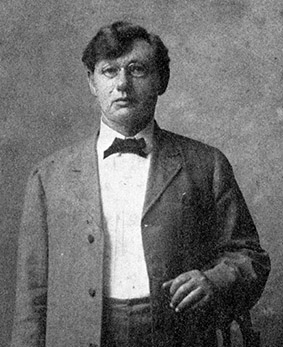
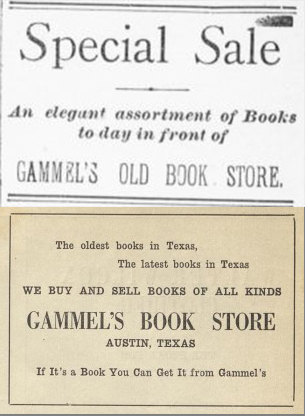
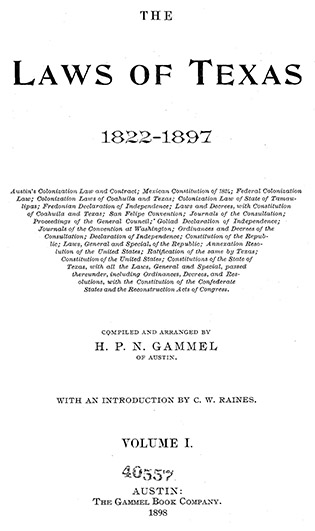
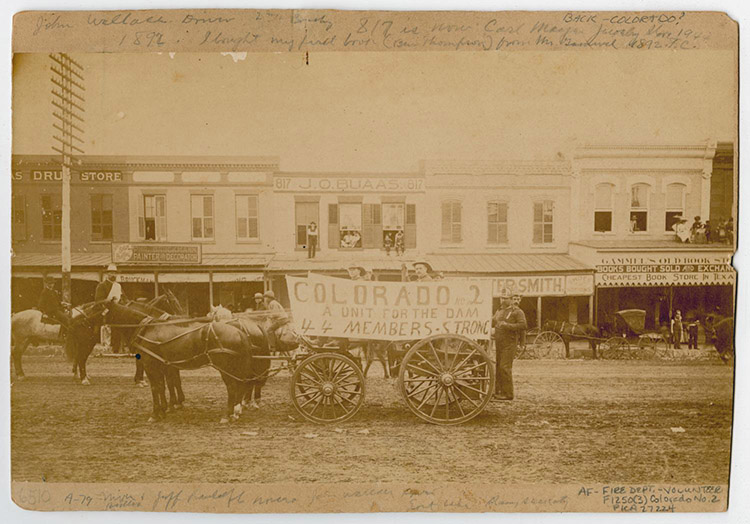
- State of Texas Capitol Complex Master Plan, Phase One, Texas Facilities Commission
- Resources and Reports - Capitol Complex Project, Texas Facilities Commission
- "After Harvey, Some South Texans More Wary Than Ever About Plan to Build Landfill Near Floodplain," Texas Tribune, December 19, 2017
- Municipal Solid Waste in Texas: A Year in Review: FY 2016 Data Summary and Analysis, Texas Commission on Environmental Quality, October 2017
- Interim Report to the 79th Legislature (Charge 3 – Landfills), Senate Committee on Natural Resources, December 2004
- Municipal Solid Waste Topics, Data on Municipal Solid Waste Facilities in Texas, Texas Commission on Environmental Quality
- Mandatory Data Call for Information Regarding Claims Resulting from Hurricane Harvey (Commissioner's Bulletins # B-0035-17 and # B-0034-17), Texas Department of Insurance, September 21, 2017
- Allowing Purchases of Out-Of-State Health Insurance, National Conference of State Legislatures, January 5, 2018
- State Roles Using 1332 Health Waivers, National Conference of State Legislatures, December 30, 2017
- Health Insurance and States: NCSL Overview, National Conference of State Legislatures, Updated: December 29, 2017
- Interim Hearings – Week of November 27 and December 4, 2017, House Committee on Insurance, Legislative Reference Library, November 27, 2017
- Purchasing Insurance Across State Lines (Report to the TMA Council on Socioeconomics), Texas Medical Association, May 2017
- Interim Report to the 85th Legislature (Charge 4 – 1332 State Innovation Waiver), Senate Committee on Health and Human Services, November 2016
- "Closing the Gap," Texas Medicine, Texas Medical Association, December 2017
- A Texas-Sized Problem: How to Limit Out-of-Control Surprise Medical Billing, Center for Public Policy Priorities, February 2017
- Surprise! Out-of-Network Billing for Emergency Care in the United States, ISPS Working Paper, Institution for Social and Policy Studies, Yale University, July 2017
- Report to the 85th Legislature (Charge 7b – Implementation of legislation intended to further protect consumers from the balance billing process), Senate Committee on Business and Commerce, November 2016
- Surprise Medical Bills, Texas Department of Insurance
- Surprise Medical Bills, Texas Medical Association
-
Consider factors contributing to higher tolls across the country. (Stateline, January 9, 2018)
-
Track what members of Congress are doing. (In Custodia Legis, January 8, 2018)
-
Read about this year's flu season. (National Public Radio, January 9, 2018)
-
See what to look for in the night sky every month. (National Geographic, December 28, 2017)
- "'The system must be transformed.'" By Bill Hethcock. Austin Business Journal, December 8, 2017, pp. 12-13.
Features interview with Baylor Scott & White CEO Jim Hinton on the future of health care and the advantages of combining the finance and delivery of health care into a single system. - "Building healthier communities for an aging population." By Debra Miller and Emily McCarthy. Capitol Ideas, November/December 2017, pp. 32-33.
Highlights AARP's Caregiver Advise, Record, Enable Act [CARE Act] which aims to improve coordination and communications between seniors, their loved ones, and hospitals. - "Shining a spotlight on women veterans." By Shawntaye Hopkins. Capitol Ideas, November/December 2017, pp. 34-35.
Describes the contributions of women in the armed forces. Highlights recent efforts in Oregon, Georgia, and California to recognize and advocate for women veterans, including a traveling portrait exhibit of Oregon women veterans entitled, "I Am Not Invisible." - "Can bipartisan buddies win over Texas?" By Henry Gass. Christian Science Monitor, December 11, 2017, pp. 18-20.
Highlights the bipartisan friendship of United States Representatives Will Hurd and Beto O'Rourke. States that although bipartisanship is difficult in today's political world, views may be changing as many voters want political leaders to compromise to get things done. - "Doing Houston wrong." By Joel Kotkin. City Journal (Manhattan Institute), December 13, 2017, pp. 1-6.
Suggests critics are wrong to blame Houston's approach to urban development for Hurricane Harvey's massive flooding damage. Advocates bolstering infrastructure resiliency through flood control systems rather than through additional zoning or abandonment of the city's current growth model.
See: https://www.city-journal.org/html/doing-houston-wrong-15604.html - "Public education: keeping the wheels turning." Economist, December 23rd, 2017-January 5th, 2018, pp. 39-40.
Explains why America's school funding model — levies on property taxes — is not as regressive as some critics contest. Notes other countries do a better job of directing resources to children who need extra help.
Related information at: https://www.urban.org/sites/default/files/publication/94961/making-sense-of-state-school-funding-policy_0.pdf - "Safer nicotine: the tobacco paradox." Economist, December 23rd, 2017-January 5th, 2018, pp. 85-86.
Discusses the changing landscape of the tobacco industry. Explains the Food and Drug Administration is working on a regulatory process to make it easier for companies to introduce safer products. - "The uninsured do not use the emergency department more — they use other care less." By Ruohua Annetta Zhou, et al. Health Affairs, December 2017, pp. 2115-2122.
Debunks the common misperception that the uninsured use the emergency department [ED] more. Explains insured and uninsured adults use the ED at very similar rates and in very similar circumstances, and the uninsured use other types of care much less than the insured. - "Determining health effects of hazardous materials released during Hurricane Harvey." By M.J. Friedrich. JAMA (Journal of the American Medical Association), December 19, 2017, pp. 2283-2285.
Discusses efforts to sample the air, water, and sediment, track hazardous chemical exposures, and identify ways we can improve risk management to protect communities from future disasters like Hurricane Harvey. - "Ag tech poses difficult state tax questions." By Matthew C. Boch, Cal McCastlain, and T.J. Lawhon. Journal of MultiState Taxation and Incentives, January 2018, pp. 34-36.
Describes recent digital technology and artificial intelligence developments in the agricultural sector, designed to increase crop yields and improve operational efficiency, and the ambiguous relationship to decades-old state tax provisions, agricultural exemptions, and conservation credits. - "Collecting our thoughts on collecting states' use taxes." By Shirley Sicilian. Journal of MultiState Taxation and Incentives, January 2018, pp. 20-25, 48.
Analyzes state approaches to minimizing the impact of the physical presence requirements in the Quill decision, and outlines use tax collection, notice, and reporting responsibility in certain states. Related information at: https://www.law.cornell.edu/supct/html/91-0194.ZO.html - "The myth of the playground pusher." By C.J. Ciaramella and Lauren Krisai. Reason, January 2018, pp. 41-49.
Reviews the use of drug-free school zones in the various states. Explains drug-free school zone laws are rarely used to prosecute sales of drugs to minors, but have become a vehicle to give prosecutors increased leverage in a variety of drug cases. - "A matter of trust." By Matthew Huston. Science, December 15, 2017, pp. 1375-1377.
Explores public attitudes toward autonomous vehicles. - "Why free college tuition is spreading from cities to states." By Marsha Mercer. Stateline (Pew Charitable Trusts), January 5, 2018, pp. 1-4.
Reports 200 localities and twelve states are offering free tuition programs. Notes mixed results in meeting goals of producing more workers with marketable skills and helping local economies.
See: http://www.pewtrusts.org/en/research-and-analysis/blogs/stateline/2018/01/05/why-free-college-tuition-is-spreading-from-cities-to-states - "Bad medicine." By Sean Price. Texas Medicine, December 2017, pp. 49-54.
Calls for state legislative policy to help people safely dispose of unwanted medicines, noting this would reduce chances of poisonings or misuse and keep these chemicals out of the water system. See: https://www.texmed.org/Template.aspx?id=46159 - "Big Spring vs. big oil." By Christopher Collins. Texas Observer, December 2017, pp. 26-31.
Explores the effects groundwater mining and Permian Basin fracking operations are having on rural Texas towns. Argues groundwater districts' lax rules on water pumping and water companies lack of transparency risks depletion of these communities only sources of drinking water. - "ERCOT generation outlook released." Texas Public Power, November-December 2017, pp. 5, 7.
Summarizes the following two reports from the Electric Reliability Council of Texas [ERCOT]: Final Seasonal Assessment of Resource Adequacy for the ERCOT region (SARA): Winter 2017-18 and Preliminary Seasonal Assessment of Resource Adequacy for the ERCOT region (SARA): Spring 2018. Report at: http://www.ercot.com/content/wcm/lists/114797/SARA-FinalWinter2017-18.pdf
Report at: http://www.ercot.com/content/wcm/lists/114797/SARA-PreliminarySpring2018.pdf
Check out and delivery of New & Noteworthy titles is available to legislative staff in Capitol and District offices. To arrange check out and delivery of any of these items, you can submit an online request through the New & Noteworthy page on our website, contact the library at 512-463-1252, or use our PDF request form.

1. Blue Marble Health: An Innovative Plan to Fight Diseases of the Poor Amid Wealth
By Peter J. Hotez
Provides new public health framework called "blue marble health," which acknowledges that the world’s "neglected tropical diseases" [NTDs] are increasingly found not just in developing countries but also among the extremely poor who live in wealthy countries like the United States. Commends recent Texas legislation that called for surveillance of NTDs; advocates for continued legislative action and better physician training and research on diagnosing and treating these diseases.
Johns Hopkins University Press, 2016. 205 pages.
362.1086 H797B 2016
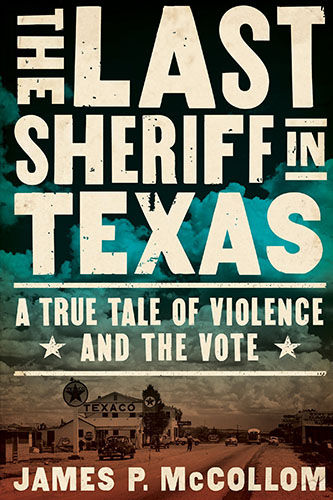
2. The Last Sheriff in Texas: A True Tale of Violence and the Vote
By James P. McCollom
Highlights the controversial tenure of Sheriff Vail Ennis, who was elected in 1944 and by 1947 had killed seven men, making him the first Bee County sheriff to kill anyone. Details the efforts of Representative Johnny Barnhart, Beeville's "favorite son," to remove Sheriff Vail from his office. Resonates with issues in present-day headlines: excessive force in law enforcement, election fraud, the power of the oil industry, and mistrust of politicians and the political process.
Counterpoint Press, 2017. 260 pages.
976.4 M133L 2017
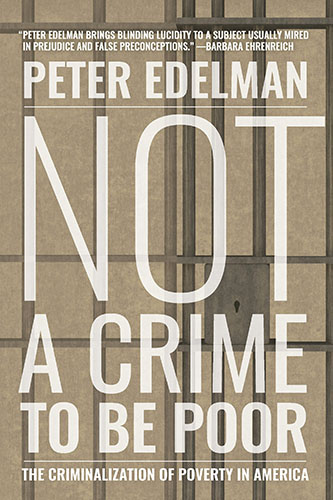
3. Not a Crime To Be Poor: The Criminalization of Poverty in America
By Peter B. Edelman
Examines how the poor are financially victimized by the U.S. criminal justice system. Documents numerous cases where the punishment for minor violations committed by low income individuals far exceeds the crime. Reports that fines often multiply exponentially, drivers' licenses are repeatedly suspended, or individuals are incarcerated because they are unable to pay the fees and fines levied - essentially turning our court system into debtors' prisons. Offers strategies for ending this epidemic of disproportionate punishments that criminalizes the poor.
The New Press, 2017. 293 pages.
362.5 ED27N 2017
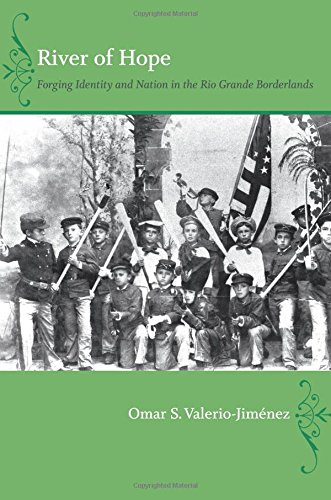
4. River of Hope: Forging Identity and Nation in the Rio Grande Borderlands
By Omar S. Valerio-Jimenez
Explores how Spain, Mexico, and the United States competed for control of the lower Rio Grande borderlands, and thereby shaped the social and political identities of the region's inhabitants. Suggests the period from 1749 to 1900 saw the "transformation of privileged Spanish subjects into neglected Mexican citizens and, ultimately into unwanted American citizens."
Duke University Press, 2013. 369 pages.
305.8 V237R 2013
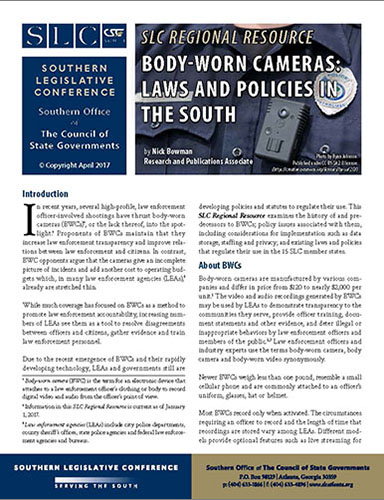
5. Body-Worn Cameras: Laws and Policies in the South
By Nick Bowman
Examines the history of body-worn cameras in law enforcement, including predecessors to the cameras and the origins of camera use in Britain and the United States. Considers policy issues relating to implementation of body-worn cameras, including camera features and quality, data storage, staffing, and privacy. Details body-worn camera laws and regulations in fifteen states, including Texas.
Southern Legislative Conference, Council of State Governments, 2017. 23 pages.
363.23 B684B 2017
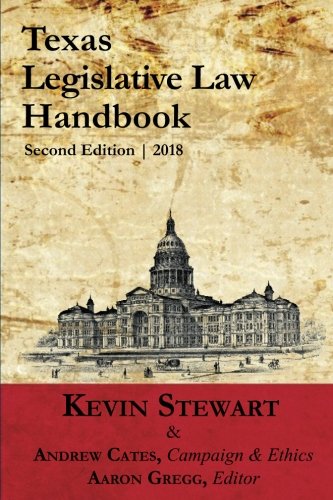
6. Texas Legislative Law Handbook
By Kevin C. Stewart
Provides guidance on how to navigate the legislative process in Texas, including how to draft legislation. Discusses principles relating to points of order and how to use them to "scrub" (kill) bills. Includes chapters on statutory interpretation, administrative law, as well as campaign and ethics law. Features appendices with drafting and bill-scrubbing checklists, a rule referencing list, and vote requirements of each chamber.
The Law Offices of Kevin C. Stewart, 2018. 270.
328.764 ST49T 2018

